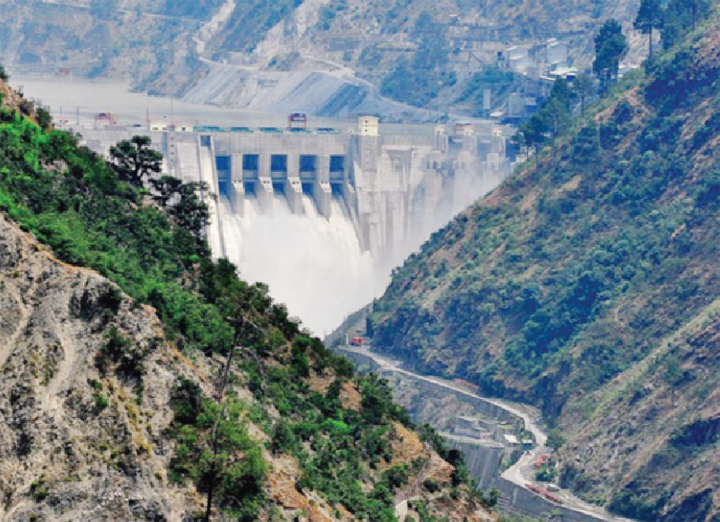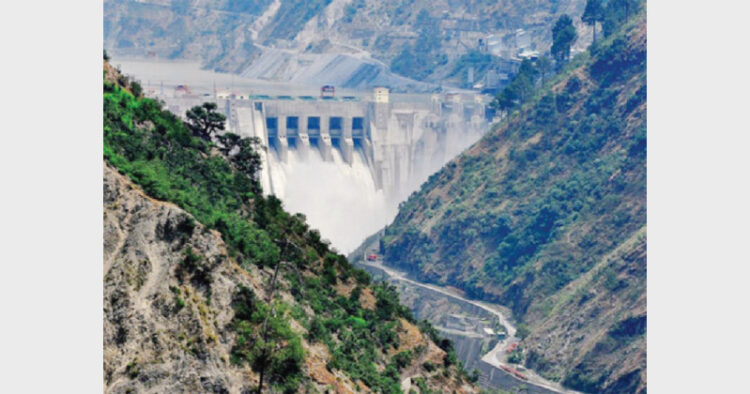 If ever India starts power project, Pakistan raises a bogey of violation of the Treaty. Discussions between the two countries take place and things fizzle out
If ever India starts power project, Pakistan raises a bogey of violation of the Treaty. Discussions between the two countries take place and things fizzle out
Sant Kumar Sharma
Is Indus Water Treaty (IWT) something that should go on? Or is it an agreement which should change with the changing times to ensure a better utilisation of waters available in the Indus basin?
Is it fair to both India and Pakistan apportioning waters? The narrative generally is that since it has withstood the test of time, it must be equitable. This is fallacious. Who is a major gainer of this treaty? India or Pakistan? May be a small detail will help understand things better.
The fact is that this treaty gives more than 80 per cent of the waters of the six rivers of the Indus river system to Pakistan. The share of India is less than 20 per cent of waters of Indus, Jhelum, Chenab, Ravi, Sutlej and Beas. Of the six rivers which constitute the huge Indus basin.
The fact of this 80:20 distribution is not there in the public domain. The skewed and wrong narrative in public domain centres around repeated allegations of Pakistan regarding IWT violations.
A little over a decade ago, Pakistan had raised objections about Baglihar hydroelectric power project being
constructed at Ramban on Chenab river. An international expert decided in 2005 that no violation of the treaty had been done by the Indian side. However, Pakistan was able to inflict heavy costs which India had to bear because of project delay. This same strategy is adopted by Pakistan ever so often. Every time, India starts some hydroelectric power project, anywhere in Jammu & Kashmir, the Pakistani response is predictable. Raise the bogey of violation of the treaty and shout. Discussions at the level of Permanent IndusWater Commissioners of the two countries are held, and things fizzle out.
Invariably, this attitude of confrontation, and its fallout for India makes it necessary that the citizens of the country understand a lot more about the treaty.
The treaty says that India can make use of the Western Rivers for (a) Domestic use (b) Non-consumptive use (c) Agricutural use (as specified) and (d) Generation of hydro-electric power (as specified). In reality, Pakistan howls foul even when waters are used strictly adhering to provisions of the treaty. This leads to project delays and cost escalation for India, repeatedly.
In Article VII of the Indus Water Treaty are given the details regarding “Future Cooperation’’ between the two countries. (1) The two Parties (read India and Pakistan) recognize that they have a common interest in the optimum development of the Rivers, and to that end, they declare their intention to cooperate, by mutual agreement to the fullest possible extent.
This spirit of cooperation inherent in the words above is missing in action. Some time ago, Pakistan had raised objections to the construction of a lake on Tawi river in Jammu city.
The lake, if and when constructed, will not constitute any violation of the treaty as was being made out by Pakistan. Its officials visited Jammu, saw the designs and had to withdraw their objections.
So far, provisions of this article have been invoked most often by Pakistan. This has led to project delays, cost
escalations and other complications for India. It costs crores of rupees for India and a piece of paper for Pakistan to write to India to invoke this clause.
Given this attitude faced from Pakistan, it is time to review the IWT so that mutual cooperation is enhanced and it is not used as a cat’s paw by our western neighbour.
(The writer is a J&K based sr journalist)














Comments